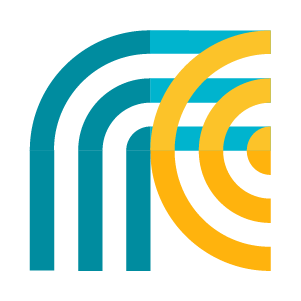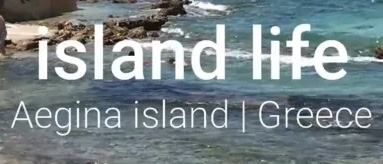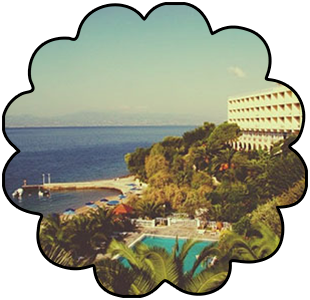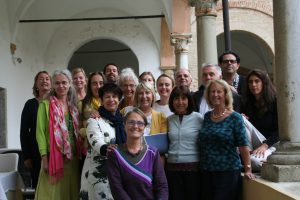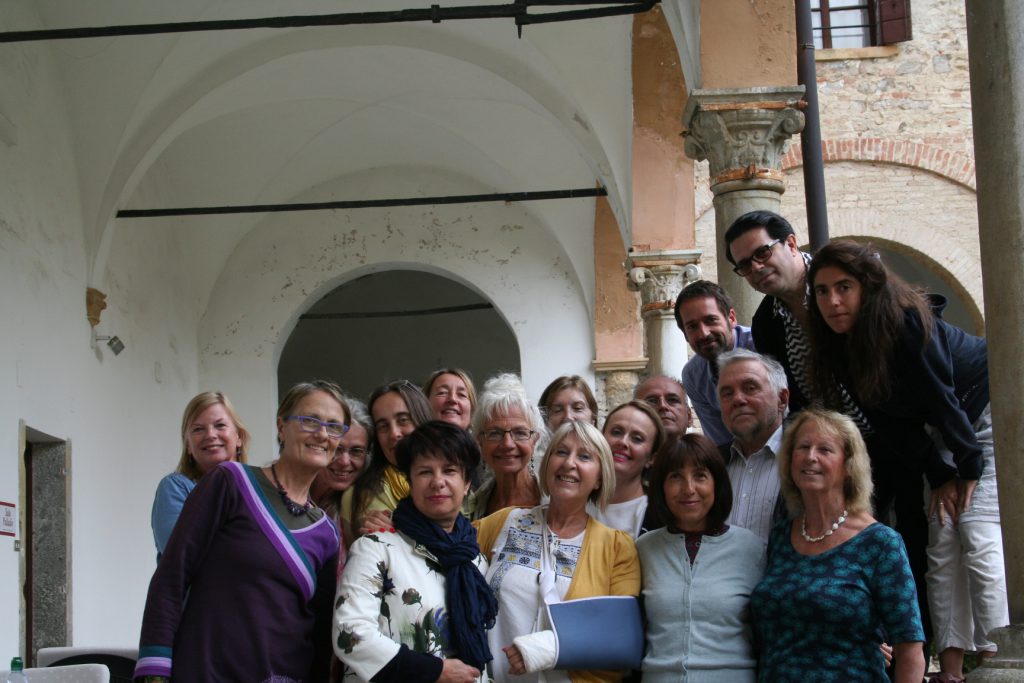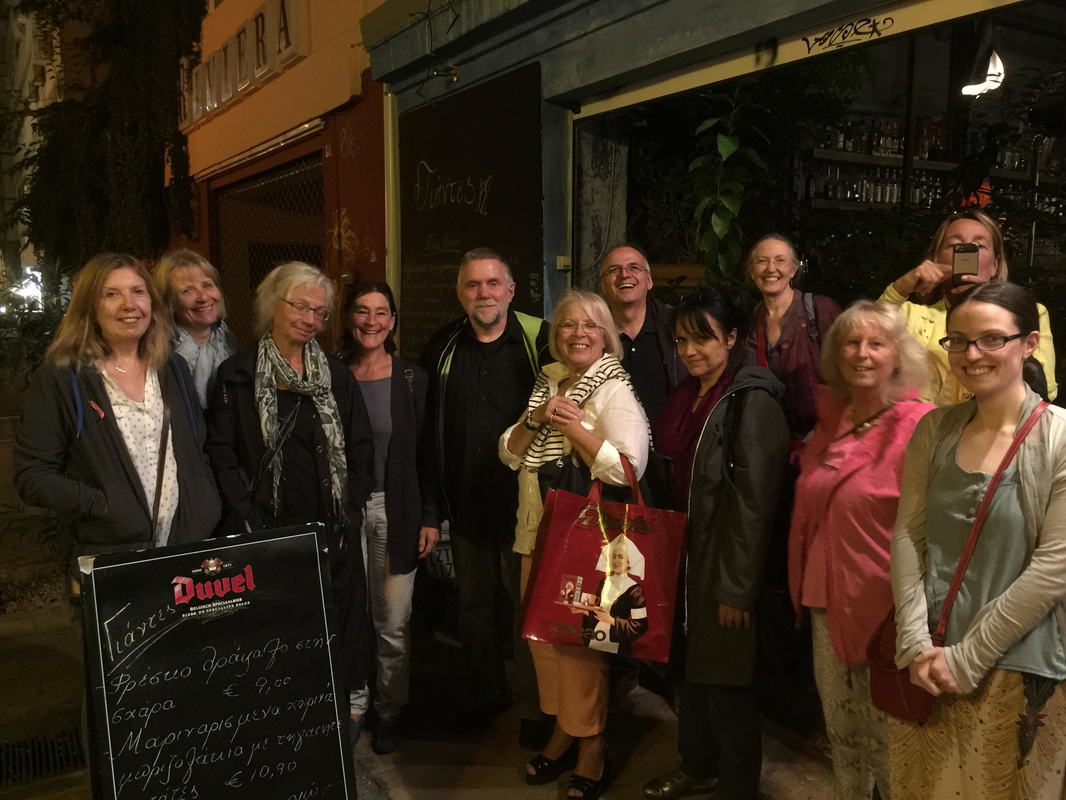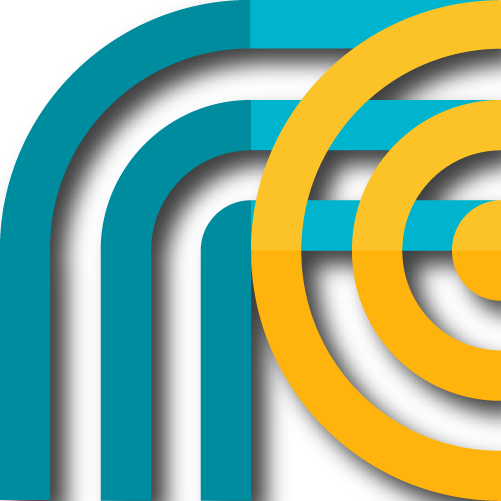EFA Networking Meetings
(around Europe)
EFA Annual Meeting 2023, 25 – 29 October 2023
Dear European Focusing colleagues,
We are delighted to announce that we have secured a booking
for the 2023 EFA gathering (annual meeting)
at Bassano del Grappa – in northern Italy, for 25 – 29 October 2023.
There will be an informal day for arriving and connecting on Wednesday, and we will start our meeting on Thursday morning/lunchtime 26 October.
We hope you can join us.
++++++++++++++++++++++++++++++++++++++++++++++++++
Review of EFA Gathering 2022 in Bassano del Grappa, Italy
You will find a nice report including some pictures here: Newsletter 6/2022 November 2022
EFA Annual Meeting 2022, 13 – 16 October 2022
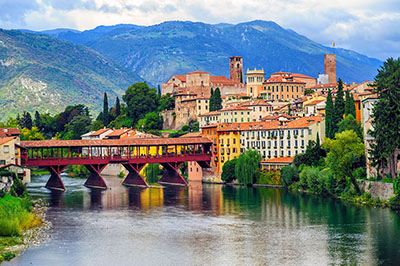
Bassano del Grappa Old Town and Ponte degli Alpini bridge, Veneto province, Italy
The venue is lovely. You can see more information here
https://www.villangaransangiuseppe.it
The website is in Italian. How to activate Google Translate
THE VILLA ANGARAN SAN GIUSEPPE will be hosting us over the three days.
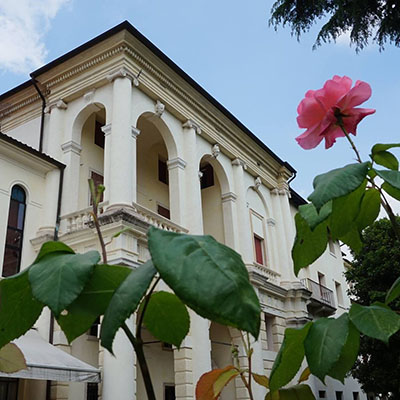
The Villa is located at
Via Ca’ Morosini, 41 36061 Bassano del Grappa (VI)
Tel. +39 331 418 72 84
For those who would like to stay on site, the rooms will be booked on a first come, first served basis as rooms on the premises are limited.
Please read the entire post carefully for instructions on how to book yourself in as an EFA member.
PROGRAMME:
The theme of our gathering is:
The Art of Relating
“Relationships & Interaffecting”
We invite you to contribute your offerings: workshops, talks, lectures, discussion groups. All offerings are welcome.
Even if you are not sure yet if you will join, please feel free to post what you would like and need, or what you migh offer at the gathering by posting it on the communication platform:
https://docs.google.com/document/d/1yPOLKH7vBfyZwK-y5KGsP7-2VTRqZ4y9QOn5OwndPYU/edit
or by emailing us @ efa@legacy.efa-focusing.eu
MEALS:
Lunch and dinner are NOT included in the costs of the room and will need to be paid for separately on-site.
There is a good restaurant on the premises open to the public and to the other participants of the various social activities that take place there. This restaurant offers us the opportunity for shared meal times and caters to vegetarians and omnivores alike. Gluten and dairy free options can be arranged ahead of time. Breakfast is included already in the costing for the rooms. For 15 people and over we will have a set menu for the group, if we are less everybody can order from the menu.
Lunch: price range to be determined, probably around Euro 15 without drinks
Dinner: Price range between Euro 18 and Euro 23 including drinks with a set menu and about Euro 30 a la carte..
There is also the option to eat out (together) in the old historical centre of Bassano.
ARRIVALS/DEPARTURES:
Check in from 4 pm to 8 pm on Thursday afternoon with a shared dinner on the premises. We are starting our gathering with dinner at 7pm
Check out of bedrooms by 10 am on Sunday.
We will close our meeting at 1 pm and lunch will be available on the premises for anyone who wishes to stay on.
For anyone who wants to arrive earlier and/or stay on longer these arrangements to book in for extra nights can be arranged by yourselves at the time of booking, or potentially added on later if availability allows. Due to the Pandemic our hotel might only be open Thursday to Sunday.
HOW TO GET THERE:
Bassano del Grappa is reachable by train.
Use trenitalia.com to check train times from wherever you are coming.
You can book online through this website or buy your ticket at the ticket office.
Another good site is Trainline.com.
This platform searches through various European train- and bus-services.
For those planning to fly, the closest airport is Venice Marco Polo airport.
On: https://www.atvo.it/en-ticketonline.html select:
Departure from “Venice Airport (Marco Polo) to all destinations”
then select:
Da/From: Aero Porto Marco Polo (VCE)
and A/To: Mestre Stazione SS.FF.
Euro 8 one-way, Euro 15 both ways
Once in Mestre take the train to Bassano del Grappa trenitalia.com
ACCOMODATION:
In the THE VILLA ANGARAN SAN GIUSEPPE we have available to us
- 6 double rooms with private bathroom – at a discounted rate of €45 a night for singles,
full double rate €60 a night for couples or two people sharing with twin beds. - 1 triple room €75,00
- + tourist tax – €2 per night for all above choices
- Breakfast included
- Our meeting room is at the villa
NEARBY HOSTEL: Ostello Bassano Del Grappa
at Via Lorenzo Chini 6
The hostel is some 15 minutes or so walk away from the villa and also has the option to use a shared kitchen for those who prefer to self-cater. For people who would prefer an even more cost friendly option there are also shared dormitories at the hostel.
- 2 of these singles come with a private bathroom at €30 a night
- And 5 other single rooms which come with the use of a shared bathroom for €25 a night.
- double rooms with a private bathroom €55
- double rooms with the use of a shared bathroom €48
- + tourist tax – €2 per night for above choices
- Breakfast included
https://www.ostellobassanodelgrappa.it
This website is in English, Italian and German so easy to browse through.
GETTING TO THE VENUE or HOSTEL:
To Ostello Bassano Del Grappa at Via Lorenzo Chini 6:
By foot: From Bassano train station / bus: 1.4 km, 17 minutes.
To VILLA ANGARAN SAN GIUSEPPE at Via Ca’ Morosini, 41
By foot: 20 to 25 minutes from the train station/bus.
By Taxi: 0039 (0)424567774
The cost from the train station
to both Bassano del Grappa to the Villa Angaran San and to the Hostel Ostello Bassano Del Grappa, Via Chini, 6
is between €7 and €9.
TO BOOK your accommodation:
We have a special price for members of our group
that you won’t get if you book online.
Please include your name, that you are coming for the
European Focusing Association meeting 13 – 16 October 2022,
and your choice of room and exactly how many nights you will stay.
Please book either choice, hotel or hostel with: prenotazioni@villangaransangiuseppe.it
Either Paolo or one of her colleagues will respond by email.
IMPORTANT: Please make sure to CC efa@legacy.efa-focusing.eu
so that we know you are coming.
PAYMENT:
Accommodation and Meals:
To be paid on-site directly to the hotel by each participant.
For the Meeting Room:
We are imagining that we will be around 20 people.
Based on this estimation there is a single cost of €35 euros per person for our meeting room
to be paid in addition to the cost for the bedrooms. We will collect this money when we are there.
Thank you.
NEW: GETTING READY FOR THE GATHERING
Communication Platform
This link: https://docs.google.com/document/d/1yPOLKH7vBfyZwK-y5KGsP7-2VTRqZ4y9QOn5OwndPYU/edit
leads you to a platform in which we can share ideas for our 2022 gathering. With that we can keep a nice overview over everybody’s ideas. Express what you would like to have happen and what you might like to offer. And let everybody know that you are coming.
Topics include:
- Ideas for the official EFA meeting, topics, activities…
- Who will join and what’s their contact info?
- Travel: sharing the ride
- Coming earlier/staying longer
- Covid-19 travel info
- Please feel free to add more topics
The steering group will take a look at new posts on this cloud-platform at least once per month to consider and to incorporate what’s being expressed.
You may also use the EFA-email discussion forum:
european-focusing-discussion-list-request@legacy.efa-focusing.eu
(Stay connected. Sign up if you have not done so yet.)
Looking forward to meeting with as many of you as can come.
Warmly,
on behalf of the Steering group
Fiona Parr, Sari Pekki, Amona Buechler, Ruth Hirsch,
Dietmar Steinbach, Hejo Feuerstein, Cornelius Gehrig
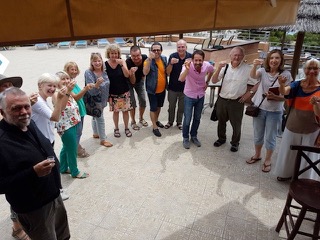
Notes from the (EFA) General Assembly
October 10th, 2021
on zoom
Minutes
Here you can read the minutes from the recent EFA Annual General Assembly
EFA Annual Meeting 2020, 8 – 11 October 2020
Rescheduled for October 2021
due to COVID-19
Due to the ongoing uncertainty of the Covid situation, and the difficulty of predicting travel restrictions in each country in October, the Steering Group has decided to cancel the group booking at Bassano del Grappa once again this year (2021). See our newsletter page.
Older EFA Meetings
Notes from European Focusing Association (EFA) General Assembly
Saturday 25th May and Sunday 26th May 2019
Agia Marina, Aegina
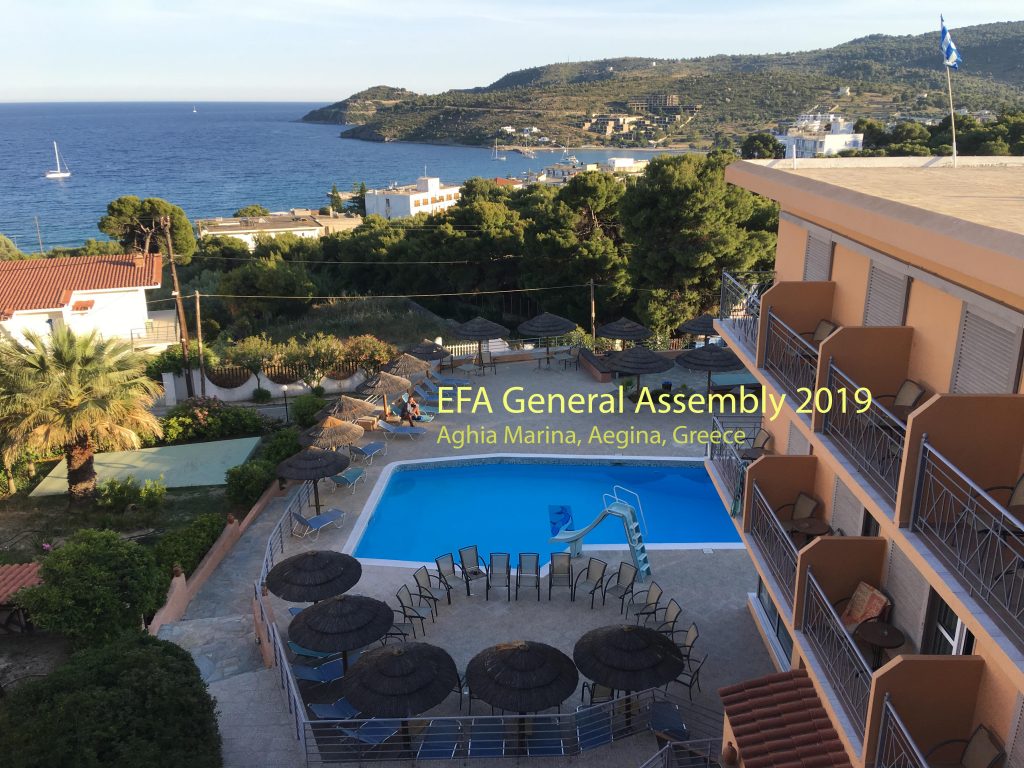
- Outstanding Financial Matter – As EFA has no formal structure, the Hellenic Focusing Center (who organised the first EFA Conference in Loutraki in 2018) have for the past year been holding the net income after tax from that conference after all expenses were cleared. It had been unanimously agreed at the General Assembly after Loutraki that all net income after tax should go to fund the website, including reimbursement for time spent by the webmaster since 2015 and to repay a loan towards the setting up of an earlier version of the website made by a private individual.
The sum remaining now stands at 7,143 Euros after all expenses and tax have been deducted. It was decided by the Assembly that this money be passed from the Hellenic Focusing Center to be held temporarily by an EFA member to be distributed in accordance with the wishes of the General Assembly in Loutraki in 2018. This was unanimously agreed (all green cards).
- The Vision Statement- This was distributed to all participants, the ‘vision’ acknowledged, and no changes were made to the text.
- The next conference/ biennale/ gathering- Nobody has so far offered to organise a conference for next year. Different formats were suggested- e.g. a ‘fair’, something like the North Western gathering in the US where only rooms were booked. The wording is important- the word ‘fair’ has proved not to be appealing in the past and the word ‘conference’ immediately generates specific expectations. The term ‘European Focusing Biennale’ was proposed for a larger gathering. For a smaller gathering some thoughts were:
-A greater percentage of workshops/ exchange of offerings in proportion to time spent on process/ EFA matters;
-a 4-hour siesta in the middle of the day;
-an extra day;
-the General Assembly to be held at the end of the gathering;
If there is no offer for a larger gathering for 2020 then an organising committee may come together to plan a larger gathering for 2021 (possibly consisting of Michael Callifronas, Cornelius Gehrig, Heidrun Essler and Patricia Foster).
In the absence of any current offer to organise a larger gathering, an initial proposal to host a smaller gathering in Greece next year was made, but this was vetoed by one red card on the basis that we have met in Greece three times and it would be good to meet elsewhere to reflect that we are a truly European Association. It was therefore proposed that we write to the wider EFA network to invite an individual or a group to organise a gathering outside of Greece. We will ask for offers to be made before the end of August and then make a decision about location for a smaller gathering for next year.
- The Legal Form of EFA- Patricia Foster will research what might be the most viable legal form of EFA. The precedent of how difficult it is to establish a legal organisation with a bank account is evident from parallel difficulties encountered by PCE Europe, but Pat will investigate other possibilities.
- The Website- The success of the website was acknowledged (e.g. the video presentations from Loutraki with subtitles were much appreciated), but more content is needed. People need to send in what they want to post (including articles from their own country) and it will be put online.
- The Steering Group- some suggestions were made for people to come and go in the Steering Group so that there can be more openness and flexibility.
- Specific Offers- Several individuals made specific offers, which were much appreciated:
- Michael Callifronas has experience in the editorial field and would like to work with others on publishing projects;
- Ruth Hirsch would like to make a map to show where there are Focusers in Europe. She will gather relevant information that can then be posted online. To have a more accurate map she will also ask for input from other EFA members on Focusers in their countries who might not be affiliated with TIFI;
- Florian Christensen offered to collect information about what’s happening with different people in Europe;
- Ruth Hirsch has offered to set up Zoom meetings for EFA members; she will set up a Doodle to find an optimal time for a group to meet;
- Christine Rehbock is willing to collect articles written in Dutch for the website;
- Christine Rehbock is willing to do subtitling for videos in English;
- Heidrun Essler is very interested in an online summit and will gather information about this;
- Hejo Feuerstein would like to set up a facility for online supervision and will collect names for who might be interested;
- Jennie St Clair will publicise EFA in Australia;
- Antigone Tsegeli offered to organise a smaller gathering in Greece (but this cannot be for next year);
- Hejo Feuerstein proposed a discussion list for EFA members (like the Coordinators’ List and the TIFI list).
15 June 2019
The 2019 EFA Annual Meeting
in Aegina Island, Greece
24-26 May 2019
Read the post
Preparing for Aegina: two experiential interviews
Lucy van Praag and Hejo Feuerstein
March 2019
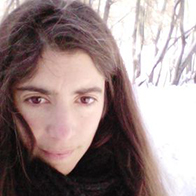
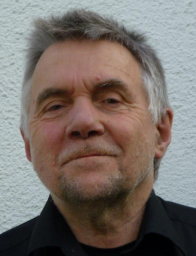
Aghia Marina
Aghia Marina, Aegina, Greece
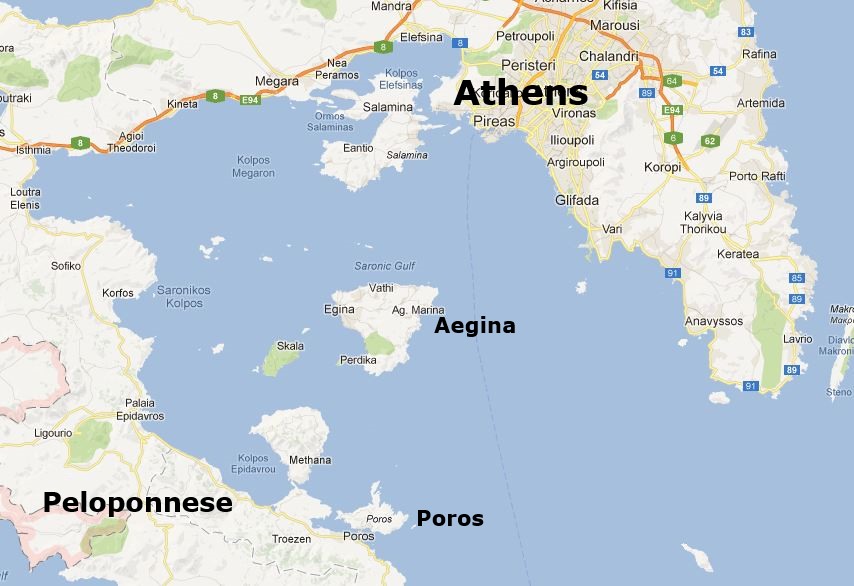

Dear EFA member,
We are pleased to announce the next EFA Annual Meeting will take place in Aghia Marina, Aegina, Greece.
This meeting is a gathering where EFA members can come together to share their work and ideas
and the annual EFA General Assembly will also take place at some point.
The meeting will be held at the Magda Hotel from 24.5.2019 – 26.5.2019.
The link to the hotel’s website is www.magdahotelaegina.gr
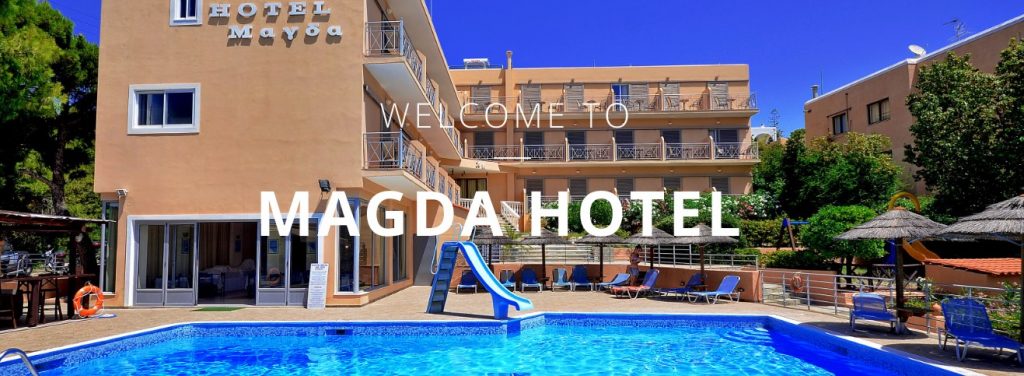
As this is not a conference (i.e. there will be no pre-planned programme),
there will be no conference fee and the only costs are for accommodation.
You will need to book directly with the hotel.
If you want to stay at the Hotel Magda
before the meeting or extend your stay after the meeting
the same discounted rate will apply.
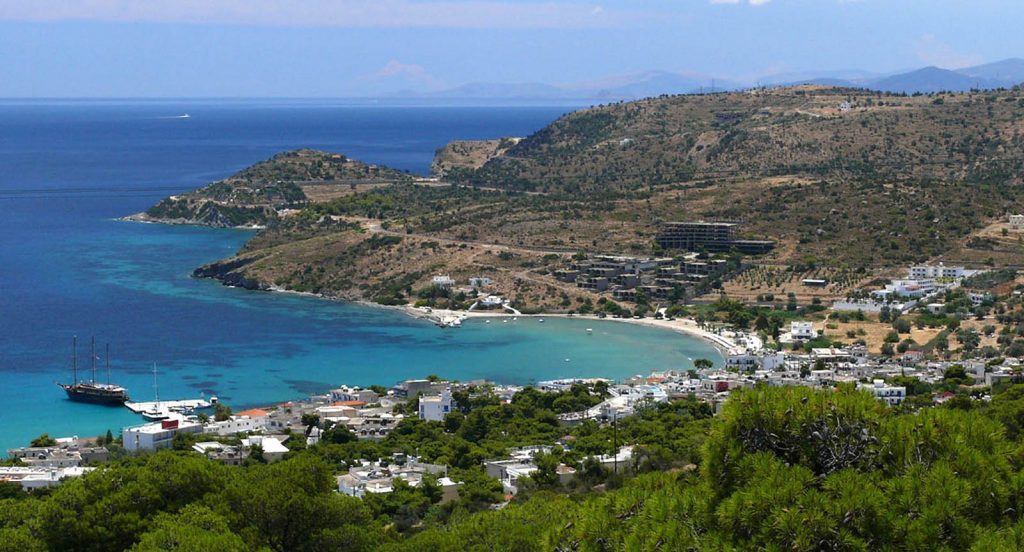
Aghia Marina, Aegina, Greece
Special discounted rates have been arranged by for the EFA meeting and all prices include breakfast.
The costs are as follows:
Single room € 36.50 B/B (all taxes included)
Double room € 42.50 B/B (all taxes included)
Triple room € 62.50 B/B (all taxes included)
Please note that there is only one triple room available.
Please note the hotel has 30 rooms only (including the one triple room)
but should we require more rooms for participants, there is another hotel nearby (a 3 minute walk away),
that can accommodate other guests.
This second hotel will be slightly more expensive, so we recommend early booking.
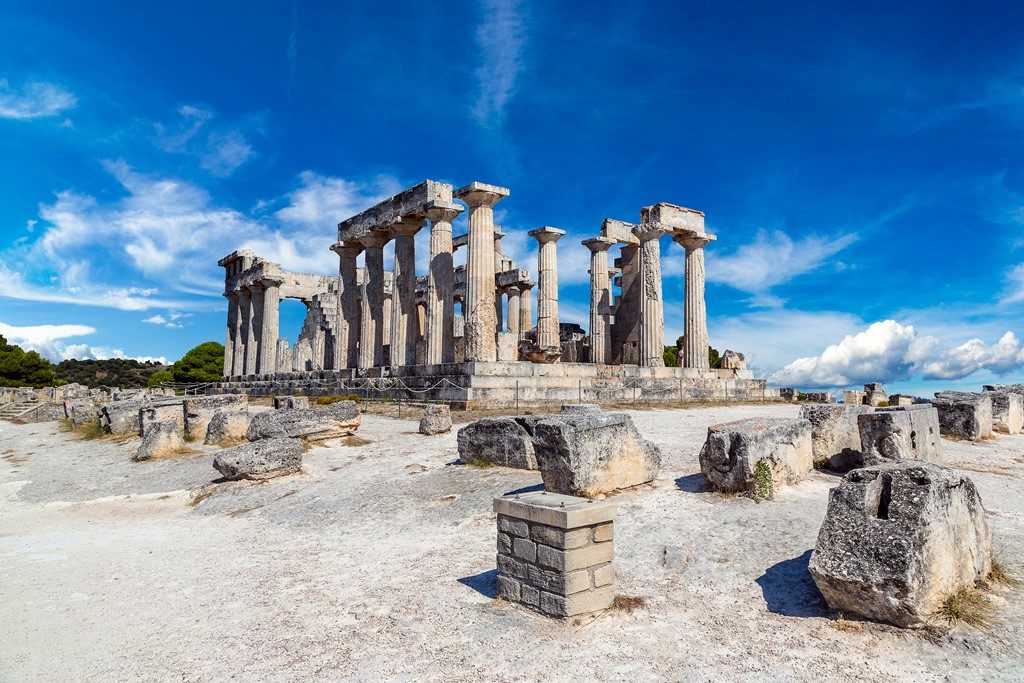
Temple of Aphaea
Looking forward to meeting you in Aegina
the current Steering Group of EFA
Hejo Feuerstein (Germany), Patricia Foster (UK/Greece)
Cornelius Gehrig (Germany), Nikos Kypriotakis (Greece)
Judy Moore (UK), Fiona Parr (UK), Lucy Van Praag (Italy/UK)
Bookings and Payments
All bookings and payments should be made directly to the hotel and they require a€ 50 deposit PER ROOM
(not per person if you are booking a double room)
Bookings should be made by 15 January 2019 at the latest
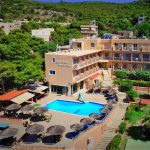
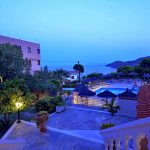
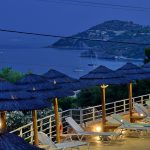
Banking details are as follows:
—
ETHNIKI TRAPEZA (NATIONAL BANK)
GREECE
SWIFT BIC: ETHNGRAA
IBAN: GR2901102410000024100163492
ACCOUNT:LALAOUNIS PANTELEIMON, HOTEL MAGDA AGHIA MARINA AEGINA HELLAS—
BANK OF PIRAEUS
GREECE
SWIFT BIC: PIRGBRAA
IBAN: GR4601721240005124085373527
ACCOUNT: LALAOUNIS PANTELEIMON, HOTEL MAGDA AGHIA MARINA AEGINA HELLASINSGRUCI—
Please quote on your Payment Order: “EFA MEETING MAY 2019”
Instructions for Booking and Bank Transfer
Kindly note that booking and payment should be made directly with and to the hotel via email:
Contact Person: Pantelis Lalaounis
E-mail address: ml1@otenet.gr.Booking Deposit per Room is: € 50
At the same time as confirming your booking with Hotel Magda, you are kindly requested to cc your booking with your name(s) and dates of stay to Patricia Foster through the EFA gmail account focusing.europe@gmail.com.
The reason for this is simply that Patricia Foster, who has arranged the hotel, can monitor if we need any additional rooms for participants and of course keep a list of participants attending.
We are aware that banking charges can be costly when transferring funds to Greece and Patricia suggests using a Borderless Account such as TransferWise (link: https://transferwise.com/). Patricia uses this method for cross border transfers because she loathes paying extortionate bank charges and has found them to be very efficient and upto 8x cheaper than a bank! If you email Patricia on focusing.europe@gmail.com or patricf1956@gmail.com she can send you a direct invitation/link to set up an account, which is very easy, alternatively she recommends that you search the internet to source other borderless account transfer systems.
Interesting Facts & Places to Visit
Aegina Island
(Visit the website aeginagreece.com for more information)
Visit the AeginaGreece Website
Originally the island was call Oenoni (or Oenopea or Inoni), its name was changed to Aegina, one of the 50 daughters of the river god Asopus (with the nymph Metope), who was loved by Zeus, who in order to protect Aegina from Hera’s wrath, transformed himself into an eagle and carried Aegina to the uninhabited Oenoni. Aegina bore at least two children: Menoetius by Actor (or Aktor) and Aeacus (or Aeakos) by the god Zeus. Aeacus was the first king of the island. Later Aeacus asked Zeus to give him subjects and so he turned the ants of the island into humans, thus the first inhabitants of the island were called Myrmidones (or Myrmidons) from the Greek word ‘ants’ (in Ancient Greek: Μυρμύγια, Myrmigia). Zeus changed ants into warriors who had six hands and wore black armour. Later, the Myrmidones, commanded by Achilles, were known as the most fearsome fighting unit in Greece.
The first coins of the western world were made in Aegina in the 7th century BC. The turtle and later the tortoise were chosen as symbols for the first mintings.
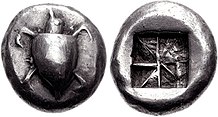
Ioannis Kapodistrias was the first Governor of the New Greek Nation from January 1928 until December 1829. Aegina Cathedral (Metropolis) serviced as the parliament building, community and political centre for election of local elders and as school.
Places to visit
Apart from Aegina, the main port and town, there is also Aghia Marina, Perdika and Souvala, small picturesque fishing villages to the South and North of the island respectively.
Aghia Marina
Aghia marina is 15 kilometres from Aegina town, a small peaceful resort, surrounded by pine forests, a relaxing combination of green wooded mountains and sea.
The Temple of Aphaea
The Temple of Aphaea (or Aphaia, or Afea – in Greek: Ναός Αφέας) is only 1.5 kilometres from the village of Aghia Marina
(read more: https://en.wikipedia.org/wiki/Temple_of_Aphaea)
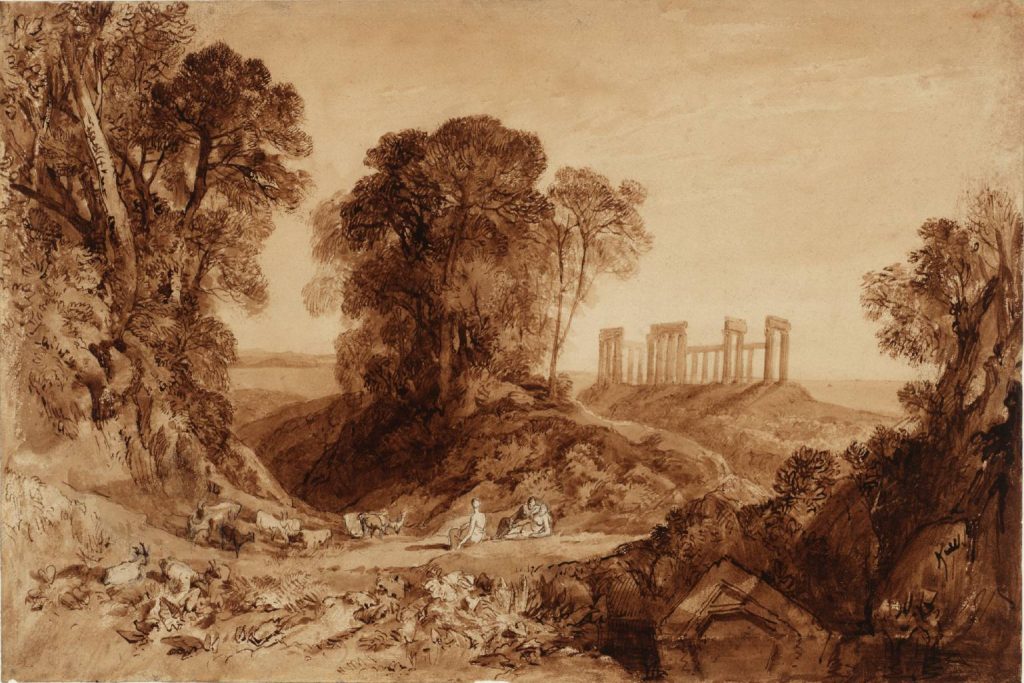
The Temple of Aphaia at Aegina (‘The Temple of Jupiter in the Island of Aegina’) circa 1816 Joseph Mallord William Turner 1775-1851 Bequeathed by Henry Vaughan 1900 http://www.tate.org.uk/art/work/D08173
The Temple of Aphaea is a well-preserved example of Doric architecture. Aphaea is a mermaid goddess, transplanted from Crete, where she was known as Vritomartis. Legend has it that Vritomartis was born from Zeus and Karmi. However when Minoas fell in love with her in order to get away from him, she fell into the sea where she got tangled up in some fishermen’s nets and they took her with them on their ship. But on the ship, a sailor fell in love with Vritomartis and so she was forced once again to fall into the sea in order to escape him. She managed to swim to the nearby island of Aegina and from the ship the sailors watched her reach the island and head towards the forest. It was then that they saw her begin to vanish (the sailors believed it was an intervention from the gods) and so they named her Aphaea, from the word ‘afandos’, which in Greek means that somebody has vanished into thin air.
Pedimental Sculpures
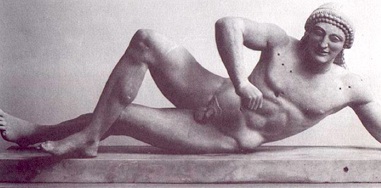
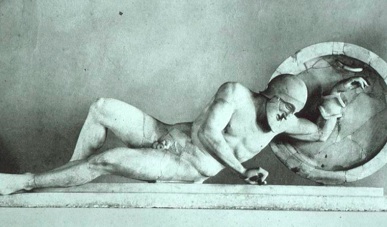
Images credits: link
Aghios Nectarios
Six kilometers from Aghia Marina is the Monastery of Aghios Nectarios the largest church in Greece. Saint Nectarios of Aegina was officially recognised as a Saint by the Ecumenical Patriarchate of Constantinople in 1961. Thousands of visitors from the surrounding Orthodox countries flock to Aghios Nectarios each year.
Paleo Chora
On a steep hill nearby the monastery of Aghios Nectarios is Paleo Chora (Old Town) Aegina’s Medieval Village and which was for a millennium (9th century – early 19th century AD) the island capital. All that remains of this hill village with its castle are its churches, of the original 365 churches rumored to have been built today 70 churches are in existence, with 33 churches open to visitors. A truly spectacular place with amazing scenery.
Kolona – Aegina
 Kolona (Column) in Aegina is an archaeological site located on the left from the harbour of Aegina. In Ancient times it was considered as the Acropolis of Aegina, it was the religious and political base of the city. It was named after it’s only pillar, which remains until today. Kolona was first inhabited in 3500 BC. The copper era. The settlement was protected by a wall that was built in 3000 BC The northern walls have been saved which were built around 1600 bc along with some ruins that are dated back to 1300 bc
Kolona (Column) in Aegina is an archaeological site located on the left from the harbour of Aegina. In Ancient times it was considered as the Acropolis of Aegina, it was the religious and political base of the city. It was named after it’s only pillar, which remains until today. Kolona was first inhabited in 3500 BC. The copper era. The settlement was protected by a wall that was built in 3000 BC The northern walls have been saved which were built around 1600 bc along with some ruins that are dated back to 1300 bc
There is also the Archeological Museum of Aegina located on the sire of Kolona. It was established in 1828, by the first Governor of Greece Ioannis Kapodistrias, as The National Archeological Museum. There is a fine and surprising collection of artifacts, including an exceptional sculpture which has the head of a woman with a body that is half eagle and half lion. The Sphinx was excavated from the Kolona site in 1903.
For Walking and Hiking enthusiasts Aegina has a wealth of very interesting trails
Please see http://energoi-aegina.gr/category/trails/
Skotini – Monastery of Chrisoleontisa
LENGTH: 2,5 hours at a moderate pace DESCRIPTION: Easy at the beginning and moderate after WHAT I NEED TO TAKE: Water (there is no spring to drink from, nor shop en route to…
Mount Ellanion Tour
8,8 km 5 hours Degree of difficulty: moderate (difficult for a short time after Achlada)
Sfentouri – Elaionas (or Eleonas – the Ancient Olive Grove)
3 km 1 hour 15 mins Degree of difficulty: moderate
Ancient Elaionas (or Eleonas – the Ancient Olive Grove)
5,8 km 3 hours easy – moderate – easy
Read more about the sacred place of Eleonas here: link
Chrysoleontissa
6 km 2,5 hours. difficulty: moderate
Mythical Asopos
5,8 km 2 hours 30 min Degree of difficulty: easy – moderate
Palia Chora (or Paleochora)
1,2 km 40 min Difficulty: easy and moderate
In the Pine Forest
5,2 km 2,5 hours (hiking) Easy bike or hiking route
More details, etc.
…
(Brief additional descriptions will be added here in the future)
Please see the website from Liz Koster www.aeginagreece.com for full and up to date information from arrival at Athens Airport to Aegina-Aghia Marina plus handy tips for travelling in Athens–Aegina.
There is also a video illustrating the journey from the airport to the Port of Piraeus.
(Visit the website www.aeginagreece.com by clicking on the picture)
Where are you going? – To Aegina…
Click the links below to see what is in store for you…
Now you know where you are going…
TRAVEL ARRANGEMENTS FROM ATHENS AIRPORT TO AEGINA
All information has been taken from www.aeginagreece.com
Airport to Piraeus
Airport Bus X96
Please note there is an airport bus X96 located between Exit 4 and 5 at the arrivals level, which departs every 20 minutes.
The X96 takes you directly to Piraeus port where you can obtain a Ferry Boat or Flying Dolphin to Aegina.
Please tell the driver that you are going to Aegina, as it is the very last stop at Piraeus Port.
You will enter the port through Gate E8. The journey is approximately 1- 1 ½ hours depending on traffic.
The price of a ticket at the moment is € 6 and is obtained at the ticket office near the shuttle bus stop.
The timetable for the Airport Bus is available on the site www.athensairportbus.com
Train from airport to Piraeus
There is also direct transport by train from Athens Airport to the Port of Piraeus, the trip is approximately 63 minutes, the train leaves every hour.
However, the port is approximately a ten-minute walk from the train station to the port or a short taxi ride.
The first train to leave the airport is 5.52 a.m. and the last one at 10.50 p.m.
Price of a one way ticket is €10.
More information and timetables to be found at www.trainose.gr
Airport-Athens-Piraeus Timetable
Call 14511 for the Customer Service Centre (every day 06:00 – 23:00)
Taxi from Airport to Piraeus
The Taxi Rank – queue is outside of exit 3 at arrivals, the journey is approximately a 45 minute ride to Piraeus Port Gate E8
and the day time rate is € 50.
From Piraeus Port to Aegina by Ferry
Upon arrival at Piraeus port, please enter the port where you will find the various ticket offices,
Hellenic Seaways Ferries (blue, white and red colours) Nova Ferries (red) or Agios Nektarios Ferry (light yellow).
The boat trip takes approx 1 hour 15 minutes, except the Agios Nektarios which take 1 ½ hours.
A single ticket ranges from € 8.50 – € 9.50.
Tickets are purchased at the ticket offices on the quay, but if you are running late they can be purchased on the ferry.
From Piraeus Port to Aegina by Flying Dolphin
There are two Hydrofoil companies: Hellenic Seaways (green, white and blue) and Aegean (blue and yellow).
The trip takes 40 minutes and tickets at present are €14. One way.
You must purchase your ticket at the offices, you are not allowed to purchase on board.
Arrival at Aegina Port to Aghia Marina
There is a taxi rank immediately outside of the port, a taxi to Aghia Marina is a 20 minute ride and costs approximately €16.
There is also a bus terminal opposite the port where you can catch a bus to Aghia Marina, but they are not very frequent.
The 2018 EFA Annual Meeting
in the 1st European Focusing Conference
“Facets of Focusing”
15 May 2018, Loutraki, Greece
Yes we had our
1st European Focusing Conference
(10-14 May 2018)
in Greece !
Visit the Conference Website by clicking here:
Conference Website 2018
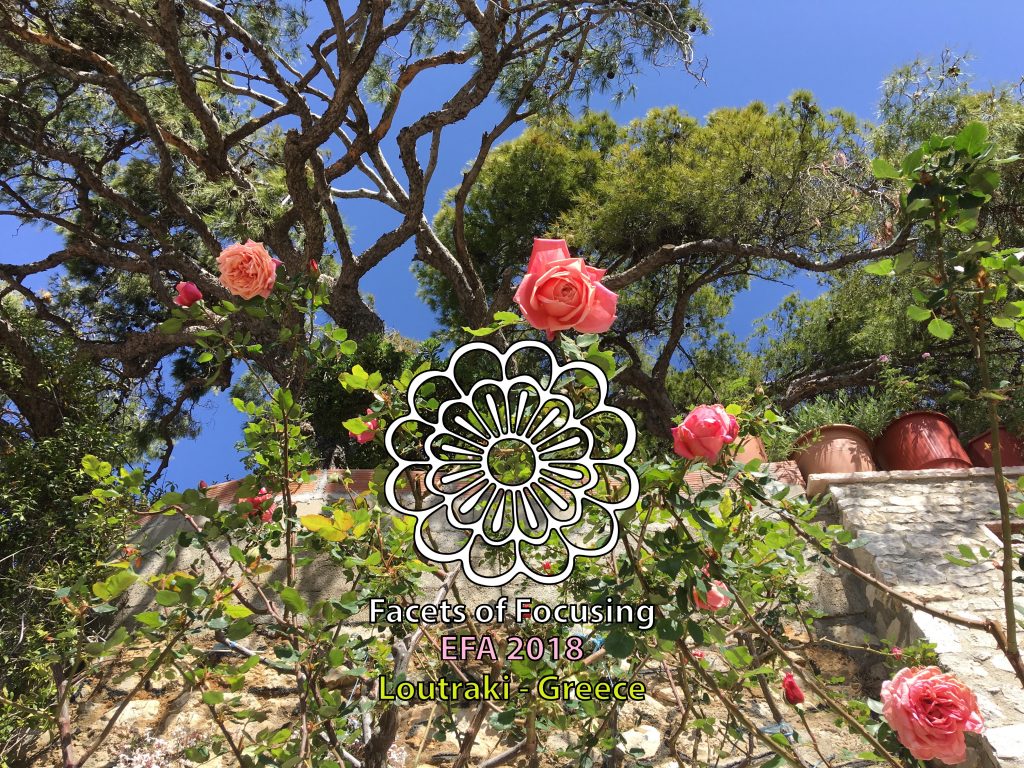
EFA General Assembly Notes
[Decisions, again, were made according to the ‘card system’, explained by Fiona Parr:
When there is a general showing of green cards the proposal can go ahead.]
Agenda Items
- Heidi–The next event to be organised by EFA
- Mia– The European website
- Steering group(Tine’s email read out about the need for the Steering group to take time to process how it has worked/ hasn’t worked before new members join it)
[Other items from participants for which there was no time]
Hejo– A European publication
Lucy– process put in place for supporting people when conflicts arise
Hejo– English: how can we reach the people who’re not comfortable with speaking English?
Steering group Items
- Online workshops
- The next General Assembly
- The next European conference
- Collaboration with Person-Centred groups]
Before the agenda items:
Hejo gave the background to EFA:
EFA began in 2009 and was formed by a group of coordinators with the aim of fostering collaboration and support amongst European Focusers. We have been EFA since Cambridge (2016) after a Vision Statement had been prepared and approved there. We need to consider what kind of organisation should we be? The underlying question is: what do we need to make Focusing great again? EFA is a networking organisation that has no legal status.
Agenda Items
- The next event to be organised by EFA
Pavlos- We should have a European conference happen every two years when there is no international conference. (majority Green card- two red cards- not agreed). It was pointed out that the international conference maynot happen in a predictable way (i.e. it may not happen every two years).
Heidi- Regardless of what happens with the International conference there should be an EFA conference every second year and we should have a more informal gathering every year in between. And the General Assembly should be part of that. (only green cards- agreed)
- Website
Mia- The website is a most important resource for Focusers in Europe. It’s very democratic. Anyone can access it and no one is excluded. She proposes that what we have written for the conference and the conference videos can be posted there. There can be discussion groups there. Online translations could also be made available- we could post our own papers and translations. To be based in Europe but everyone welcome to access it. We need a good webmaster who needs to be paid.
Paula- the world needs to learn from the brilliant minds in Europe.
Nikos- you need to register for the website and create an account.
Pavlos- importance of all of this in terms of promoting collaboration.
Hejo- agrees that we should have online workshops and encourage online collaboration. Maybe the website could include Zoom. Maybe webinars should be paid for.
Pat (Foster)- reinforced Mia’s proposal with a proposal from the steering group re the website. We have funds from the conference. From the proceeds of the first EFA conference all expenses incurred and Nikos’s time since 2015 should be reimbursed and all remaining funds should go to fund the website (including Nikos’s time/ that of any other webmaster for the future). The webmaster should make all decisions regarding the website. (only green cards – all points in this paragraph agreed)
Meg- webinars should be free.
Mia- what is offered on the website should be information rather than advertising. We could simply add links.
Nikos- at the moment people do post workshops (i.e. do advertise there).
Ruth- at the moment she offers workshops through TIFI and a third of the fees go to TIFI. Could the funds go to EFA? (Pat- we can’t take money because in Greece we cannot take funds.)
It was also proposed that an extra 20 Euros be added to any future conference fee to continue to fund the website. (green cards- agreed)
Nikos- asked the Assembly to please subscribe to the EFA website and we can discuss this website issue there and all other issues.
3. Steering Group
The steering group is not a Board, but it takes decisions.
Hejo- the aim is to listen to others. Who should be on the steering group? Up to now it’s been who turned up. Need to create a balance between being structured and unstructured.
Mia- likes the fact that it is informal. Has respect for people who are actually willing to ‘do’ things.
Christiane- Who will go on?
Nikos- being on the steering group means to ‘create’, to do things, planning.
Fiona- has been here since Athens 2015 and wants to step down, but would like to help with the transition to integrate new people into the group.
Judy- also here from Athens 2015 wants to step down from the group in its present form, but would like to help with a transition and to process the learning from the group. Also happy to continue to work on certain aspects (e.g. English texts for the website, etc.). Referred also to Tine’s email that recommends ‘a pause’ for us to look at how the steering group has functioned/ not functioned and what it needs to go forward.
Possible new members:
- Ruth Hirsch put herself forward
- Another suggestion was that it should involve people representing interest groups
BUT
Mia– proposed that we use the European website for people to nominate themselves/ offer themselves, saying what they can offer or bring to the steering group and for the community to comment and agree who should be on the steering group. This would give a stronger mandate for the person who puts themselves forward to replace leaving members. (green cards-agreed)
Hanspeter– proposes that there is a report on the activity of the steering group every year, to be presented at the AGM (green cards- agreed)
Steering Group, from May 2018
Caterina Carta and Bruna Blandino (Italy) (in a rotating manner)
Hejo Feuerstein (Germany)
Patricia Foster (UK/Greece)
Cornelius Gehrig (Germany)
Nikos Kypriotakis (Greece)
Judy Moore (UK)
Fiona Parr (UK)
Lucy Van Praag (Italy/UK)
Tine Swyngedouw (Belgium)
and anyone who will “apply” for it (via the EFA website)
Feedback from Interest Groups
Marine-what brings us ‘aliveness’? What keeps us young? The group met once, but was deep. Conclusion that life is precious through facing death, finding meaning in life.
People who are interested in this should contact Marine at mdefreminville@gmail.com.
Ifat- The topic was ‘Spirituality in life through/with Focusing – connecting earth with sky’. During our 3 meetings, we noticed on an experiential level that when we open a shared space and speak from the inside, the wisdom comes, and with time it changes not only us but also our surroundings. We explored how our attention/consciousness can make a difference to spaces, and how it can help when we are in groups, in ‘shared’ space. We explored how this work/practice/intention can not only help us as individuals but can affect the universe on an energetic level, bringing light and hope to difficult places
Patricia from Montreal – Wholebody Focusing and Heartfelt Conversation. The first group established Gounded Presence, formed a ‘We’, shared what came and were inspired to join Greg Madison’s group later that evening. A new group of 6 formed on Sunday, following Annat Gal-On’s workshop on Focusing Oriented Relationships. The heartfelt connection was profound, moving from the Greater Space where we are all One to the uniqueness of each individual grounded in the Here & Now, yet still forming this safe interconnected Web. We left knowing that we could draw on this group in the future to move forward our work with the relationships that need our care & attention.
For more on WBF Heartfelt Connection: pmanessy@hotmail.com and www.wholebodyfocusing.com.
Hejo-European programme on coaching. Not so many people interested in coaching. So decided to open it to more people for them to bring in existing workshops. People can learn from each other across countries to start this programme.
Hejo-interest group of only himself to consider issues of racism in everyday life. Would like to continue this with colleagues from Europe. How can we make an impact on this very unsettling development in Europe? Proposes meeting by Zoom.
Martina– Laughter and Humour in Focusing. Desire to have more joyfulness in our lives. How come that doesn’t happen as much as we would like? Can we enjoy ourselves and also do something meaningful? Is it ok to be silly for its own sake? Looked at how humour can bring more ease, more vivacity, more aliveness, and can facilitate a “shift”. It can also be manipulative and used to re-direct a conversation. Understanding a joke gives a feeling of belonging, and perhaps in not understanding you feel left out. Joyfulness and sadness are part of life. The Greek word “Charmolipi” encompasses both. Can we make space for both? Contact: Martina Flavin Email: martinaflavin27@gmail.com
Fiona– Teaching group. What is the crucial, most important thing to teach, when teaching Focusing? 2ndmeeting peer supervision. Continued also with Focusing teachers in Europe group. Anyone who is teaching Focusing is welcome to join. We don’t want to standardise, but we want to create standards that enable Focusing teachers to offer ‘EFA-recognised courses and trainings.’ We are looking at what is needed for courses to be EFA recognised. People should connect with Fiona if they want to be part of this group. fiona@fionaparr-focusing.co.uk.
Hanspeter– 3 of us met to discuss how we can reach young people for Focusing. We will open this group for everyone via the EFA webpage.
Lucy (for Greg)– A group of us formed an interest group on the ‘subversive potential of Focusing Activism’. This evolved into a discussion about sensitive political conversations that we can’t have: in the broader world and within the Focusing world. This followed from experiences of being aggressively attacked on Facebook by people using ‘identity politics’, accusations of privilege, and tactics of shaming and silencing. We wanted to reintroduce complexity into narratives that have become overly simplistic and divisive, challenging the strategy of categorising people according to broad social-economic-gender-race. We wanted to experience ‘safety’ in open dialogue rather than censorship. Our discussion broadened again to include any conversation that is hard to have within the Focusing world as well as more broadly (questions of power, hierarchy, competition etc in Focusing). We will send an email with a link to a closed Facebook group for Focusers who want support to express their views on any difficult topic about how we gather together and respond to the world.
Meg-wants to see if there is interest in forming a group to explore identity politics- cultural, gender, social identification- through inner relationship focusing. Also interested in using interactive focusing as part of this and to address the imbalance of power within relationships and across cultures. For more details please contact meg.benessere@gmail.com.
Taking part in one of these Groups
You may (simply) send a message to the person who initiated the Interest Group on your interest
or just e-mail us.
Later on we may build an online form for you to express your interest in participating in one of those IGs
Details about the workshops, interest groups, task groups, etc.
All the necessary information can be found at the Conference Website.
(Brief descriptions will be added here too)
The 2017 EFA Annual Meeting
29 September – 1 October 2017, Padua, Italy
(near the beautiful city of Padua in Northern Italy)
TERME SAN MARCO
Casa religiosa di ospitalità, Via Santuario 130 – Abano Terme, 35037 Padova – Italia
Tel. – (0039) 049 8669041 Fax – (0039) 049 8639585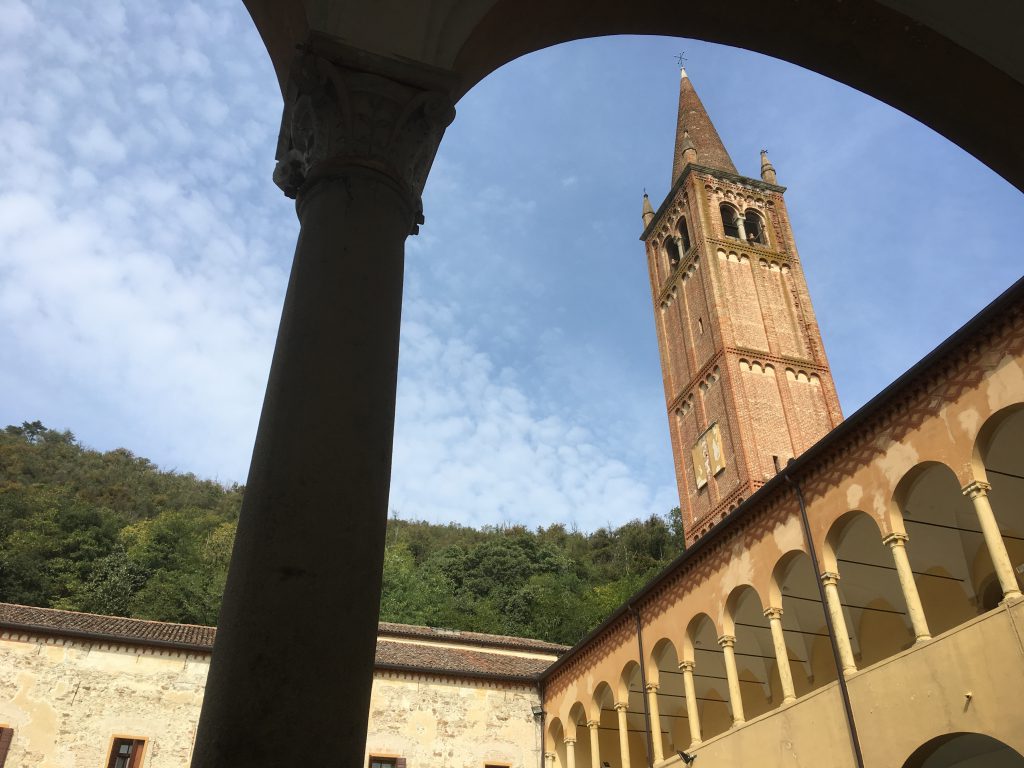
Task/Interest Groups
| 1. European Focusing Conference | 2. Teaching Focusing | 3. EFA as a Formal Organization | 4. EFA Accreditation Programme |
Pavlos Zarogiannis (Greece)
Edit Selmeczi (Hungary) |
Friedgard Blob (Germany) Eirini Davleri (Greece) Ria van Hage (Netherlands) Evi Kladouhou (Greece) Fiona Parr (UK) |
Patricia Foster (Greece/UK) | Hejo Feuerstein (Germany) Maria Emanouela Galanti (Italy) |
Taking part in one of these Groups
Steering Group, from Oct 2017
Maria Emanuela Galanti, Caterina Carta and Bruna Blandino (Italy) (in a rotating manner)
Hejo Feuerstein (Germany)
Patricia Foster (UK/Greece)
Cornelius Gehrig (Germany)
Nikos Kypriotakis (Greece)
Judy Moore (UK)
Fiona Parr (UK)
Edit Selmeczi (Hungary)
Lucy Van Praag (Italy/UK)
Tine Swyngedouw (Belgium)
EFA General Assembly Notes
[Decisions were made according to the ‘card system’, explained by Fiona:
If you have a proposal you start with a Pink card
Yellow card- I have a question
Dark Blue card- I need a listener
Light blue-I need a pause
Green– I agree with the proposal
Orange– needs more discussion
Red– I disagree
When there is a general showing of green cards the proposal can go ahead.]
Agenda
1. Feedback from interest groups
2. If and how we can continue next year. Can there be a bigger European gathering next year and who will organise it?
3. How to accredit programmes through EFA (coaching as an example).
4. Website and EFA issues.
5. Steering group. New members?
6. Connect EFA to other European Organisations.
1. Feedback from Interest Groups
The focusing teachers’ group (coordinated by Fiona Parr)
The proposal is to form a teaching group for people who are teaching focusing. That this be open to anyone who is teaching focusing.
They will meet regularly by Zoom.
First meeting in c. 6 weeks will be invited by Fiona.
They will aim to make use of the EFA website.
Practicalities will need to be worked out at a later stage. Zoom can work even for c. 25 people.
The proposal to form this group was voted on and agreed.
Focusing for Social Action and Cultural Change (coordinated by Maria Emanuela Galanti (Meg))
Discussed teaching focusing skills to refugees from Syria and their hosting families and volunteers in two towns in Italy: Rome and Turin. The connection with the Palestine Trauma Center in Gaza Strip and UK is necessary, especially because they have proved that Focusing is effective in releasing the effects of PTSD. Italy and Germany- as the two European countries that have more than others “welcomed” refugees- could work on cooperation in order to establish a best practice (presumably in Italy, if the Palestine Trauma Center applies and wins in a national competition to fund social projects though taxes). Germany (Hejo) is also quite proficient in the use of FOT for supervision of the work of psychologists and younger colleagues who work with refugees.
A second Possibility of working together is on health programmes in the workplaces. Here the aim is also to enable Focusing to take the place of Mindfulness to deal with stress and conflicts.
A third possibility for Focusing as a practice aiming at cultural change is to use platforms and other online connection, such as groups do when they use an EdX platform, e.g. Ulab, We-Space Summits, Presencing.org.
Because this interest group was small and did not meet in the early afternoon as planned, Meg is not taking responsibility for such a group on the EFA website (no sign-up sheet was handed out for this task group). However, she will join the group if someone else does.
Focusing Oriented coaching group (coordinated by Aukje Strandstra)
This group is established and ongoing. General discussion: in “mainstream coaching” there is a lack of experiential concepts and practice; clients feel relieved when coaches offer an experiential space to reconnect with their ongoing own processes. And also for coaches it is more satisfying and efficient to work experientially. We realised that we as Focusers already practice the Experiential approach in our work, and we should make it more explicit and promote this approach in the public domain. One way to do this is to work on the European programme on Focusing-oriented Coaching.
It was decided that webpages will be created for all the groups to continue their work.
2. How do we continue? Can there be a bigger European conference and who will organise it?
Anna Karali proposed that Greece host a European Focusing Conference next year. It will be held in Greece but the aim is that it will be a truly European event organised in honour of Gene Gendlin and as a project of the European Focusing Association. It will take place in May or June 2018 (next year).
The project was warmly welcomed and agreed by all present, including those on Zoom.
There needs to be a task group and there was some discussion about whether or not keynote speakers should come from outside of Europe.
Pat proposed that different countries come up with suggestions.
Maybe involve coaching if needed by team.
Hejo proposed that a group be founded within EFA to support the Greek team.
Next steps- date and location to come from Greek group.
3. How to accredit programmes through EFA
This was proposed by Hejo Feuerstein and discussed in relation to Concept 004 (a separate document, which was handed round at the meeting).
An accreditation committee will be responsible for issuing certificates. Proposes a framework based on what has been considered in relation to the coaching programme (Hejo and Aukje).
A committee will be formed, open to all members, to discuss this.
This is not about legal accreditation, but about accreditation by EFA. It will mean accreditation inside our network.
The language issue was discussed. Many very good trainers do not speak English. The idea is that individuals would take a workshop (e.g. in coaching) and then take it back to their own country to present in their own language- using English as a ‘bridging’ language. It may be that national groups could organise their own translation of material.
Astrid: language is a common issue among focusers in Europe. Need for repetition and going slowly in giving workshops to ensure understanding.
Hejo: most Europeans speak ‘broken English’. Aim of this project is to communicate as well as is possible in English so that the material can then be communicated more fluently in native languages to groups in own country.
Translation might be organised locally, ideally by someone who has some understanding of focusing.
Next step: Hejo proposes a trial and then he and Aukje will report back.
Majority of green cards. Germana needs more time but is happy for the proposal to go ahead.
4. Website and EFA issues
Nikos Kypriotakis is currently in charge of the EFA website (https://legacy.efa-focusing.eu). He pointed out that the website has much to offer. You can upload docs, events, etc., but you first need to log in.
The way for new members to register is to email Nikos. He will then register the new person. We have had too many spam users so have had to stop automatic registration.
We also have a Facebook page where things can be posted (https://www.facebook.com/FocusingEurope)
It was suggested that maybe the front page could be added to so that new things can be displayed- and also things that people from outside would be interested in.
Grateful thanks for all his hard work on the website were expressed to Nikos. Thanks were also expressed to Hejo, who organised the current website with his German colleague, Gilbert Seilheimer.
The structure has recently been improved and it is easier to add to it now.
Patricia said that the website should be financed. Partly to boost it and also to pay for support. There was general agreement, but a difficulty is that to finance the website we would need to form a more official organisation.
Hejo: originally a ‘formal’ organisation was proposed for EFA and then it was rejected in Paris. Because with a formal organisation you lose power and energy and have a hierarchy.
Hejo proposes that we have a task group re founding an official organisation, to consider whether or not we need it. We are trying not to compete with other organisations and that is one of the reasons why we have avoided a fee. Maybe donations would be an option.
Discussion about whether or not we want to be a formal organisation. Advantages and disadvantages.
A proposal for the formation of a task group to look at whether or not we want to be a formal organisation was agreed. Hejo proposed that those who want to establish a formal organisation discuss the pros and cons and submit a proposal to the next General Assembly.
5. Steering group
The steering group is currently Hejo, Fiona, Pavlos, Nikos, Judy, Tine– more recently joined by Meg for the purpose of putting this Abanoevent together.
Judy and Fiona want to ease their way out over the next year. Pavlos would like to step down immediately (though he will be involved in the organisation of the Greek conference). Hejo, Nikos and Tine will continue for now, Nikos in a reduced way. He will no longer reply to emails that are sent to the EFA email address, but Judy and Fiona will look out for them instead.
The steering group needs to have an overview of what is going on and to inform other members what is going on.
The current steering group have always regarded themselves as an ‘interim’ steering group. They will continue in this way for another year and invite new members.
Tine: recommends that each task group sends a representative to the steering group.
Possible new members Cornelius, Lucy, Caterina and/or Bruna and Meg (on a rotating basis to represent Italy- maybe, Edit (from Hungary) maybe also Patricia.
Agreed: to write to possible new members and invite them to participate in some of our meetings and to take on some tasks.
6. Connect EFA to other European Organisations
Meg is going to a Culture Action Europe (CAE, web site: http://cultureactioneurope.org) the network of cultural organisations funded by the European Commission under the programme “Creative Europe”. The aim of her participation is to check whether EFA can contribute to CAE goals on a sustainable future and an inclusive Europe. She will report back to the Steering Group
Agreed
The 2017 EFA Annual Meeting
29 September – 1 October 2017, Padua, Italy
(near the beautiful city of Padua in Northern Italy)
TERME SAN MARCO
Casa religiosa di ospitalità
Via Santuario 130 – Abano Terme
35037 Padova – Italia
Tel. – (0039) 049 8669041
Fax – (0039) 049 8639585
Link to the venue website
Link to register your interest
What form will the meeting take?
Arrival will be in the afternoon of Friday 29 September 2017.
The meeting starts with an evening meal and there will be a whole group meeting after the meal. There is space for an informal gathering before the evening meal for those who arrive earlier.
We plan to have some time on Saturday as a plenary group and also to allow time for the formation of task and interest groups to carry the work of EFA forward. It is proposed that the EFA Annual General Assembly take place on the morning of Sunday 1 October.
Topics for workshops to date are:
- Focusing as a Lifeskill (Sharing our inner and outer process in developing Focusing as Life skill training program. Open discussion and interaction)
- Symbols that keep us together [Link]
- Systemic Constellation Focusing, how embodied family’s wisdom is moving (your) life forward?
- Focusing-oriented coaching
- Focusing to make sound choices in decision-making
Topics for task / interest groups to date are:
- Roundtables and opportunities to share ideas
- How can Focusing translate into social action in Europe?
- How can we develop our own European university and/or certification without losing our diversity and richness?
- Discussing the ILC proposal to name new coordinators (the ILC proposal to name new Coordinators, is to be found at www.focusing.org/ccr ). We invite to this group all Trainers interested in becoming Coordinators.
If you already know what kind of project group you would like, please write us and we will reserve some time and space for you during the meeting.
If there is sufficient interest, it would be possible to make space (either by extending the gathering for one day or including workshop options within the programme) for the option of workshops.
Please let us know if you would be interested in offering a workshop.
What are the costs of attending?
Prices for 2 nights accommodation (per person), plus dinner on Friday evening, 3 meals on Saturday and breakfast and lunch on Sunday are as follows:
- 128 Euros for a single room.
- 118 Euros for a shared double room. (Please arrange your own share)
- 112 Euros for a 3-4 person room. (Please arrange your own share)
An additional 1.5 Euros per day will be charged as tax and there will be a further charge for meeting room hire. The cost of the room we would like to use is 100 Euros a day. The cost will be divided among participants and the total amount required from each participant will depend on numbers present.
Address
Casa Religiosa di ospitalità, Hotel S.Marco, via Santuario 130, Monteortone (1 km from Abano Terme)
How to get there from Venice Airport San Marco
Follow the link to get to Padova train station
http://www.veniceairport.it/en/transport/padua.html
From Padova Train Station, either:
- a) share a taxi (cost: about € 35 for 20 minutes drive) or
- b) take the bus A or AT from the square in front of the station (buy the ticket in the kiosk on the train station square): there is one bus every hour.
Bus from Padova Train Station to Abano Terme
Here you can find a pdf file with information about the bus from Padova Train Station to Abano Terme (M, T, A, AT)


Provisional outline plan
Friday afternoon – Arrivals and informal gathering and meeting, before supper.
After supper on Friday – Meet as a whole group for attunement and connection.
Saturday morning – Meet as a whole group, and identify current topics for exploration and development.
Lunch 1pm
Saturday afternoon – Development of interest groups.
Coffee break, then 2 x 1 and a half hour workshops, running concurrently.
Supper, then party time and relaxation.
Sunday morning – The general assembly, where we make decisions and carry forward action steps that can be developed during the next year.
Lunch 1pm, then leave
Steering group tasks
- Collect agenda items for the assembly
- Review vision statement as a guideline
- Manage the assembly meeting
- Take minutes
Details about the workshops, interest groups, task groups, etc.
SYMBOLS THAT KEEP US TOGETHER:
REMEMBERING EUGENE GENDLIN THROUGH SYMBOLIZING FOCUSING
By MEG (Maria Emanuela Galanti)
The workshop has a twofold purpose. It is meant to commemorate Eugene Gendlin afer 5 months from his death and introduce “symbolizing Focusing,” a “new” way to do Focusing, which Meg describes in the following poem (written when she was in London). This time, quotes from Eugene Gendlin will function as obiects that appeal to our senses, among “leaves, shells, siftstones”,
NOT HOME BUT CLOSE TO HOME/A PROCESS IN SYMBOLIZING FOCUSING
From a tray we pick up an object that appeals to our senses
a shell, a leaf, a siftstone, a marble, or a giftwrap strip
and then we sit in pairs bringing our undivided attention
to the subtle sensations /or vivid recollections/ that come with it
We pause /we stay with what emerges/ … carefully we choose
our best words to tell the listener how we are affected
(we are not aware that in so doing we have picked up the threads
of a tapestry that had been waiting for long to grow in wise hands)
When we are satisfied that our words match our sensations
we ask our listening partner to hear the resonating questions
such as “if your sensation was a colour, what color would it be?”
or also “if your sensation was a gesture, what gesture would it be?”
At last we realise, the result of our answers is quite complex:
intricated hierorglyphics we can hold on to as with a secret map
to go back to that path in the wilderness – not home but close to home
where the yellow of the lemon trees no longer subdues the eyes
and the damp smell of the brushwood tickles with green the nose.
Our heads spin a little / our lungs expand in glory
as one of the possible futures we may want to live
opens up for us as a teenager’s adventure.
The 2016 EFA Annual Meeting
Tübingen May 2016
2016 European Focusing Association Network Meeting
in Tübingen
Low Budget Event to make participation possible for all
20 – 23 May 2016
University Town of Tübingen
Baden-Württemberg/Germany
Target Group
– European Coordinators
– Coordinators in Training
– Advanced Focusing Trainers interested in European Networking and Community Wellness Focusing
Main Topics
– Future European Focusing Association
– Community Wellness Focusing CWF
* learn about CWF and practise it together
* Focusing and CWF within the European Refugee Movement: Practical experiences, future projects and programms
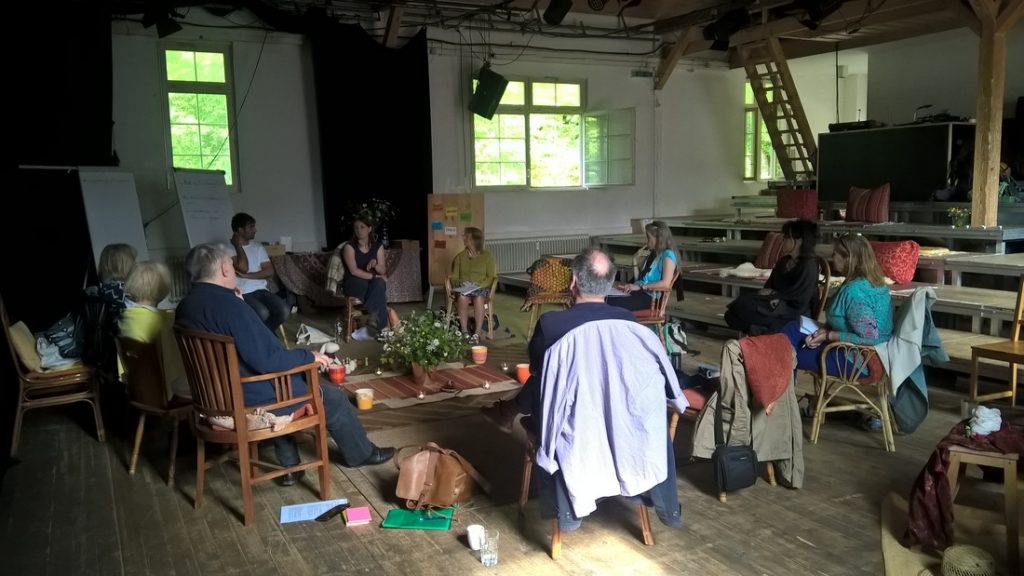 |
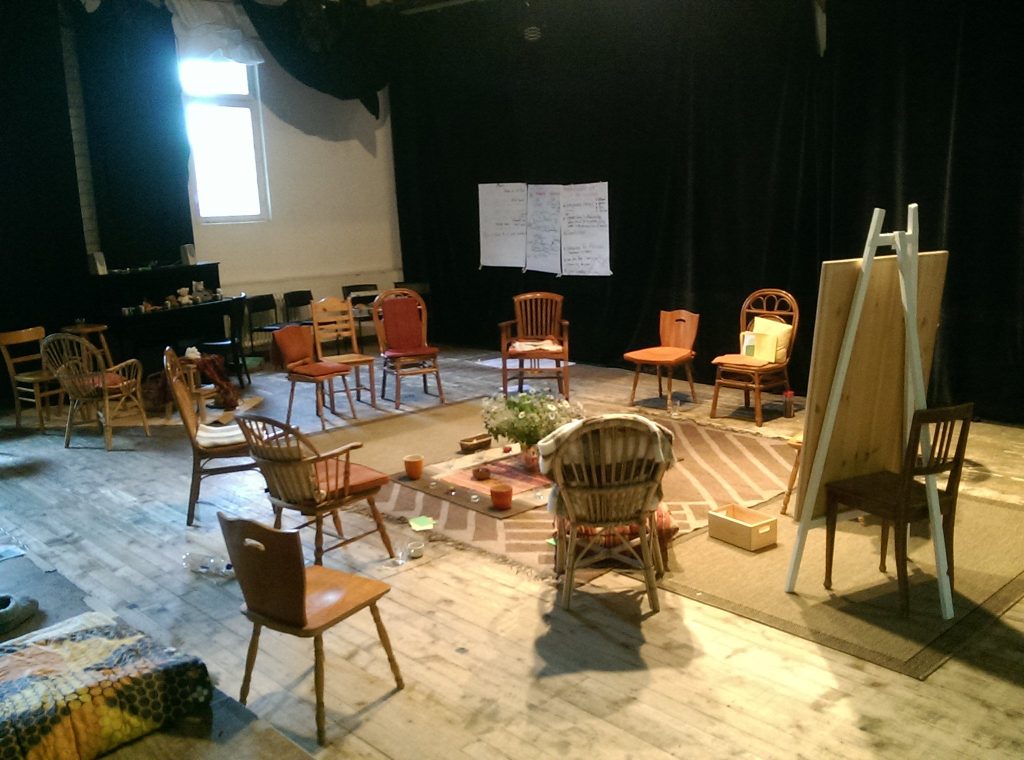 |
Statements from our meeting in Tübingen
We decided to give you all, who could not be with us,
some short personal and individual insides from each participant:
Teresa
We worked through a quite tough topic list and yet there was plenty of warm hearted and joyful friendship time. Topics as the following were discussed.
Friday afternoon: Attunement, sharing
Saturday morning: European association. Statement of intent: Pavlos introduced his and Judy’s papers.
Saturday afternoon: Refugee engagements in Germany by Friedgard, Akmal and Anika. Community’ wellbeing’ contra ‘wellness’
Sunday morning : Collaborating – association means mainly associating! Meeting with each other, sharing.
Sunday afternoon: European association in a constellation work with Ria
Monday morning: Hejo introduced the European Experiential Coaching program. Closing.
Anna
My process of participating in the specific meeting unfolded various facets.
First of all the genuine process of connecting, based on the extremely friendly and open atmosphere… Then I had a sense that the different issues/plans were approached by a soft, clear, deep, human, friendly and trustworthy manner, so that they could be elaborated under various stands, allowing discussion, not controversy, though a lot of voices were welcomed and heard.Finally, when the first European educational project was shared, in its lucid steps, an air of hope and appreciation towards this movement let me breathe in anticipation.
Pavlos
Our meeting in Tübingen was for me, once again, a unique experience.
And that which I valued most was the quality of this meeting. Somehow we managed to create a warm, open, respectful and accepting atmosphere, in which everyone could find his/her place, his/her time, his/her rhythm; everyone could be him/herself. I appreciated very much the easy going, unforced change between the personal and the professional/the business. There was time and space for everything: for difficult personal moments, encounter group, organizational issues (European Focusing Associating), professional projects (European Experiential Coaching Program, The Refugee Crisis, Community Wellness); for agreement and understanding but also for disagreement and diversity; for nature and for culture. And of course there was the friendly, kind, caring, unforgettable quality of presence of Friedgard. Thank you all.
Nikos
“I was almost constantly in a state of inward reflection, being receptive and between friends, getting to know them, feeling them and feeling that special sense that –here– there are so many things that can be done, a really lot we can ‘open’ and offer in this self-organized space … in this entire complex field of Europe … So many different, interwoven, rich cultures with heavy history, so many wonderful languages and various ‘perceptions’ about life, both wonderful people and new ideas, rich experiencing … The process: patience, pausing, interest, the common ground … I came close to the feeling of me missing the representatives of many countries … but I imagine that this ‘associating’ somehow will have to be spread out to the world … I need to find more time for this … to find the time and spend the time collaborating on this … I can help via Internet or social networks of course … Thank you all! ”
Fiona
We met in a large theatre space in the woods near Tübingen. Friedgard made it comfortable with rugs and cushions, wild flowers and candles. Long attunements made a big difference for me. We all had a chance to settle into the body felt sense, and we listened and related from our body felt sense. It deepened the quality of our relationships. Together, we created a deep open listening space where each person could be held. We took concrete steps towards creating a European Focusing Association, recognizing that we are associating already.
Haik
At every moment a contact to my own inner resonance related to the others and the themes discussed was possible. That’s an unexpected experience after a ‘pause’ of 25 years in not meeting so many Focusing colleagues throughout a single weekend. The atmosphere and ‘professional empathy’ is promising and longing for ‘more’. Beyond common routines or sometimes ‘one person up, one person down’ approaches, I felt and understood that the focus was rather on ‘being’ and ‘becoming’. I am especially thrilled concerning the coaching initiative in the frame of the EFA.
Heidrun
“I liked the easiness of collaborating with you and our following and trusting our group process. Having been at quite some meetings before I will recall this time especially some of the „side“things which make such a difference and experience complete. I enjoyed the place in an alternative culture house and the theatre which was our workshop room. Also sitting with you outside in the green woods, the stillness and listing to the singing of the birds which bridged for me the inside with the outside.
I loved playing guitar for you and singing with you at the bonfire and the sung journey through Europe. I am looking forward to learning more songs from you from your culture.”
Friedgard
For to characterize the quality of the Tübingen European Coordinator’s Meeting 2015 it took two days’ time to let the body just live its own way. Giving time to the body and the wantings of the body, dancing came up as the right expression of what Tübingen had been about, all in all. The song by Bob Marley “One Love. One Heart” had the rythm and the sound the body wanted to move to. The line of the lyrics, “let’s get together and feel allright”, put it to the point: That was what had happened in Tübingen, – right from the beginning and on different layers. Our togetherness had been of some simplicity and truth that could be felt through out the four days. There was respect for our diversity of ideas and focusing styles, there was ongoing empathy for us as focusers being part of a network processing, and there were natural gifts of listening, sharing, pausing and caring for the truth of each of us, sitting at one table. Being a European citizen and focuser on work with collegues for future collaborations for the good of the population living in Europe I felt I was at the right place at the right time with the right people. in the right way. I deeply felt there is a massive sense in what we are doing here, stepping forward into future European Associating.
Akmal and Anika
It is always inspiring and enriching meeting with Focusing community friends! Coming to a new place, meeting new faces, there pops up a jumpy thing between chest but then only after one session comes this feeling; I not only know these people but they are very dear friends. Thank you Friedgard, thank you everyone for providing such a home atmosphere.
Ria
‘I sensed a warm appreciation for all the preparations done by Friedgard to get us together in beautiful Tübingen in Germany. I experienced very positively the cultural history the European Focusing community is based upon and how it is growing forwards. We attended the State of Intent of Focusing Europe, its first education program proposal and how Focusing Europe relates to TFI, which will be continued in Cambridge in July. The other subject we attended in various ways and approaches touched my heart deeply: ‘Community well-being ’ and ‘Refugee Aid’, all so actual in Europe and in the world. And I was happy to share my systemic constellation focusing approach.’
Astrid
…
Hejo
…
Location
FOCusZ Focusing Center Tübingen
c/o Soziokulturelles Zentrum Sudhaus
Hechinger Str. 203
D-72072 Tübingen
Tel. 0049 1757228458
-FOCusZ site –
Site in German with page in English
https://www.focusing-tuebingen.de/
https://www.focusing-tuebingen.de/english/
Logistics
Accomodation:
– Free accomodation at Focusing Center Tübingen
c/o Sudhaus Tübingen (Former Browery)
Free parking lots
Access to coffee kitchen and basic sanitary fascilities
Please bring your own bedroll
http://www.sudhaus-tuebingen.de/
– private guestrooms at Tübingen airbnb
https://www.airbnb.de/s/T%C3%BCbingen–Deutschland
– Hotel Metropol Garni Tübingen
5 min walk from Tübingen station and bus station with aiport bus
20 min walk to venue
Single and double bed rooms, each with balcony and access to Wi-FI
Breakfeast buffet
Parking lots
http://www.metropol-hotel-garni.de/index.php/en/
Aiport Transfer:
– Direct bus line – No 828 – from Aiport Stuttgart Leinfelden-Echterdingen
to Tübingen bus station/main station
– Transfer from Hotel Metropol to venue:
Either walk or lifts by German participants
Infos Historic Town Center of Tübingen:
Castle – Punting – Culture – Shopping:
http://tuebingen-info.de/index.php?id=727
Athens October 2015
2015 European Focusing Association Networking Meeting in Athens
Click the button for more details
IFC Cambridge July 2016
European CC Meeting
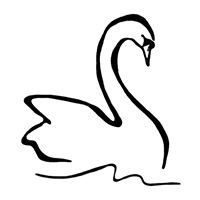
Notes from EFA meeting 2016
This meeting took place on 18 July 2016, before the 2016 International Focusing Conference, Robinson College, Cambridge (20-24 July)
Topics Discussed
- Hejo explained that a European group had first been planned in Pforzheim in 2010, with the aim of making focusing better known. The idea was the organisation should not be too ‘tight’, but to help those who want to make focusing-related events happen to connect.
- It was explained that a temporary steering group (Fiona, Hejo, Pavlos, Judy) had formed in Athens (2015) and that they are responsible for the Vision Statement, with feedback from others.
- Fiona explained that it would be helpful to use a card system to help in decision-making processes.
- Questions arose around membership. Suggestions were: anyone who is active in focusing and has had focusing training.
- Much time was spent discussing and making slight amendments to the Vision Statement.
- It was decided to present the Vision Statement first to the Co-ordinators’ meeting and then to the whole conference at the final plenary. [The statement was presented to the CCs, but there was no space left for us to present it at the final plenary. But ‘membership sign-up sheets’ were circulated and this has formed the basis of our initial email list.]
- It was decided that we should meet annually and that an annual gathering (of whatever nature) should include time together, involving different activities and also a ‘business meeting’ (the Annual Assembly)
- It was decided that membership did not need to be confined to those living in Europe.
- It was decided that the Steering Group will eventually consist of a core group plus representatives from ‘interest groups’ (e.g. a coaching group, a research/ journal group, a summer school group)
[Information was later sought from the Japanese Focusing Association as to how they operate: all members are equal; they have one annual gathering per year of 2-3 days (which includes an annual general meeting and some workshops); they have one president who is chosen by working group (interest group) leaders and serves for 3 years; they have a subscription which is the equivalent of c. 30 Euros a year.]
EFA Meeting 2014
Focusing Fair in Pforzheim, September
More details will be added soon
Click the button for more details
Meeting 2014
EFA Meetings 2013
at the IFC in Switzerland (in Emmetten), May
European CC Meeting Madrid, October
Click the button for more details
Meetings 2013
EFA Meetings 2012
European CC Meeting in London, April
European CC Meeting in Liege, December
More details will be added soon
Click the button for more details
Meetings 2012
EFA Meeting 2011
European CC Meeting in Paris, September
More details will be added soon
Click the button for more details
Meeting 2011
EFA Meeting 2010
European CC Meeting
at the International Focusing Conference in Pforzheim
May 4-5, 2010
More details will be added soon
Click the button for more details
Meeting 2010
